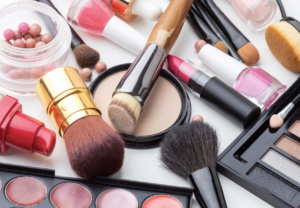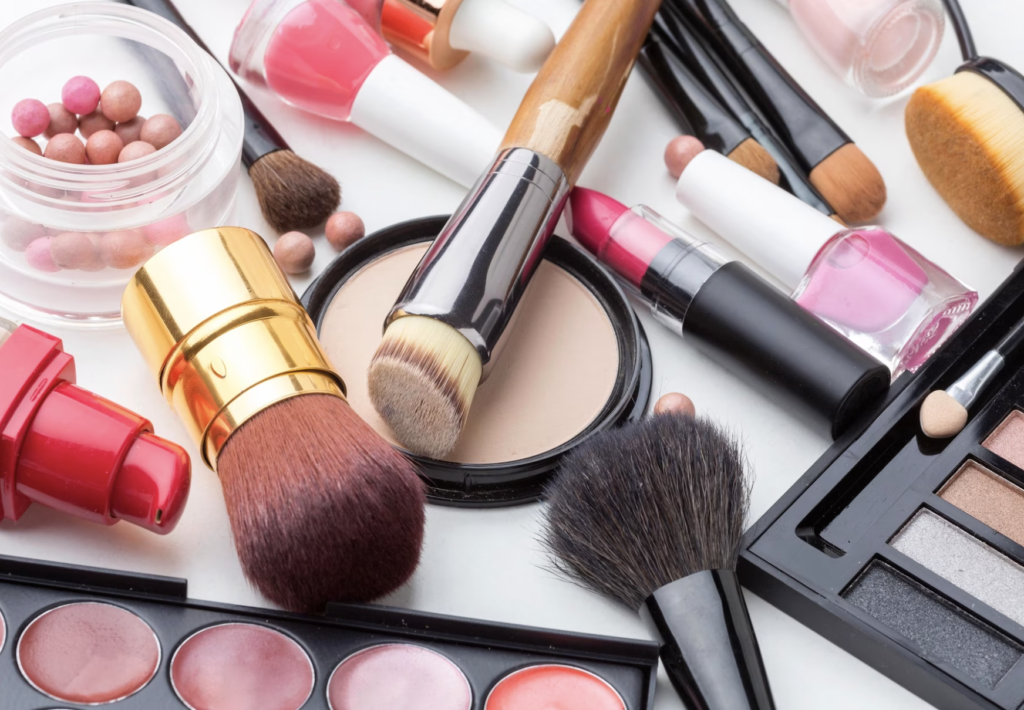The Science of Makeup. Are you someone who loves to experiment with different makeup products? Do you ever wonder why certain products work better for you than others? The answer lies in the science of makeup. Behind every cosmetic product, there is a complex blend of chemicals and psychological factors that affect its effectiveness.
In this article, we will dive deep into the world of makeup and explore the science behind it. From the chemistry of cosmetics to the psychology of beauty, we will cover everything you need to know about the Science of Makeup.

Introduction
Makeup has a long and rich history that dates back thousands of years. Throughout history, people have used makeup for various reasons, including religious rituals, social events, and personal aesthetics. Ancient civilizations like Egypt, Greece, and Rome used makeup as a way to enhance their beauty and express their social status. In ancient Egypt, both men and women used cosmetics made from natural ingredients like red ochre, malachite, and charcoal. These natural ingredients were believed to have healing properties and were used to treat skin problems like acne and sunburn.
Over time, makeup has evolved to become a billion-dollar industry that offers a wide range of products for every skin type, color, and preference. The makeup industry has undergone numerous transformations throughout history, from the heavy and dramatic makeup of the 1920s to the natural and minimalist looks of the 2000s. Today, makeup has become an essential part of our daily routine, with millions of people worldwide using it to enhance their natural beauty and express their individuality.
With the rise of social media and beauty influencers, makeup has become more accessible than ever before. People are experimenting with bold and unconventional makeup looks and sharing them online, inspiring others to do the same. The makeup industry continues to grow and innovate, with new products and technologies being introduced every year to meet the changing needs and preferences of consumers.
Despite the many changes in the makeup industry, one thing remains constant – makeup is a powerful tool that can boost our confidence, enhance our natural features, and allow us to express ourselves in new and exciting ways. Let’s take a closer look at the Science of Makeup and understand how it affects our skin and psyche.
The Science of Makeup
Cosmetic products are a result of a delicate balance between natural and synthetic ingredients, which are used to serve a wide range of purposes. The selection of these ingredients is based on their chemical properties and how they interact with the skin. For instance, natural ingredients like plant extracts and oils are known for their skin-nourishing properties, while synthetic ingredients like preservatives and emulsifiers are added to improve the product’s stability and texture.
The formulation of cosmetic products is a complex process that requires a deep understanding of the chemistry behind each ingredient and how they work together to create a safe and effective product. With this knowledge, cosmetic formulators can create products that are not only effective but also safe for use on the skin.
Chemical Composition of Makeup
The chemical composition of makeup products can vary depending on their intended use. However, most cosmetics contain the following basic ingredients:
- Water
- Emulsifiers
- Surfactants
- Preservatives
- Thickeners
- Pigments
- Fragrances
- Active ingredients
Each of these ingredients plays a crucial role in the efficacy and safety of the product. For instance, water is used as a base to dissolve other ingredients and make the product more spreadable. Emulsifiers and surfactants are used to stabilize the product and improve its texture. Preservatives are added to prevent the growth of harmful bacteria and extend the shelf life of the product. Thickeners are used to give the product the desired consistency. Pigments are used to add color to the product, while fragrances are added to improve the sensory experience of using the product.
Active ingredients, on the other hand, are the key components that provide the desired effect of the product. For example, salicylic acid is an active ingredient in acne treatment products, while hyaluronic acid is an active ingredient in moisturizers.
Skin Physiology
The effectiveness of a makeup product depends largely on how it interacts with the skin. Our skin is the largest organ of the body and has several layers that serve different functions. The outermost layer, known as the stratum corneum, acts as a barrier and protects the skin from external damage.
When we apply makeup on our skin, it penetrates the stratum corneum and interacts with the deeper layers of the skin. The properties of the makeup product and the skin’s physiological properties determine the effectiveness of the product. For instance, a product that is too oily may not be absorbed well by the skin, while a product that is too dry may cause irritation and flakiness.
Psychology of Beauty
The science of makeup goes beyond the chemistry of cosmetics and extends to the psychology of beauty. Makeup has a powerful effect on how we perceive ourselves and how others perceive us.
Research shows that makeup can boost our self-esteem and confidence by enhancing our facial features and hiding imperfections. It can also affect how others perceive us by influencing their first impressions. For instance, wearing makeup that enhances our eyes can make us appear more approachable and trustworthy.
FAQs
1. Is makeup bad for your skin?
Makeup is not inherently bad for your skin. However, using the wrong products or not removing makeup properly can lead to skin irritation, acne breakouts, and other skin problems. It is important to choose makeup products that are suitable for your skin type and remove them thoroughly at the end of the day.
2. Can makeup cause allergies?
Yes, some makeup products can cause allergic reactions in some people. This is because they may contain ingredients that are known to trigger allergies, such as fragrances, preservatives, and dyes. If you have sensitive skin or a history of allergies, it is important to do a patch test before using a new product and avoid products that have caused allergic reactions in the past.
3. How long can I keep makeup products?
Makeup products have a shelf life, and it is important to replace them regularly to avoid using expired products. The shelf life of a product depends on its formulation and can range from a few months to a few years. It is recommended to check the expiry date of each product and replace them once they have expired or if they have changed in color, consistency, or smell.
4. Can makeup affect my mental health?
Yes, makeup can have an impact on our mental health by affecting our self-esteem and body image. Some people may feel pressure to conform to societal beauty standards and may develop negative body image issues. It is important to use makeup as a tool for self-expression and not feel pressured to conform to certain beauty standards.
5. What are some natural alternatives to makeup?
There are several natural alternatives to traditional makeup products, such as coconut oil, shea butter, aloe vera gel, and beetroot powder. These products can be used to create a range of looks and are often gentler on the skin compared to traditional makeup products.
6. How can I remove makeup without damaging my skin?
To remove makeup without damaging your skin, use a gentle cleanser that is suitable for your skin type. Avoid harsh scrubs or use hot water, which can strip the skin of its natural oils. Use a soft cloth or cotton pad to remove makeup gently, and follow up with a moisturizer to keep the skin hydrated.
Conclusion
The science of makeup is a fascinating subject that encompasses both the chemistry of cosmetics and the psychology of beauty. Understanding the properties of makeup products and how they interact with the skin can help us choose the right products for our needs. It is important to use makeup as a tool for self-expression and not feel pressured to conform to certain beauty standards. By following proper skincare practices and using makeup products responsibly, we can enjoy the benefits of makeup without compromising our skin health.
Read also 5 Makeup Trends for 2023: A Look into the Future of Beauty
